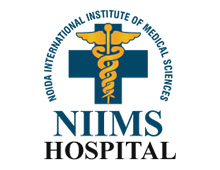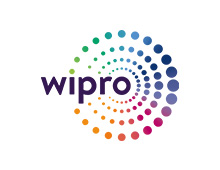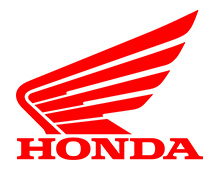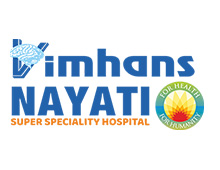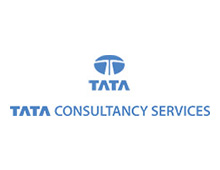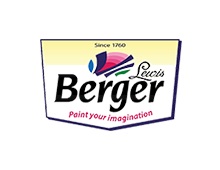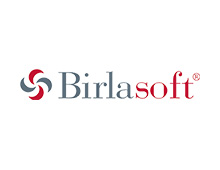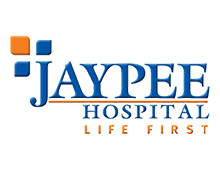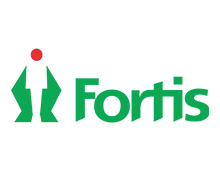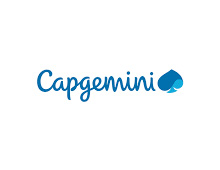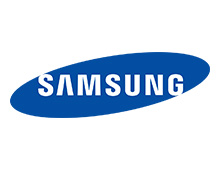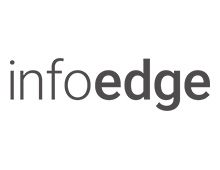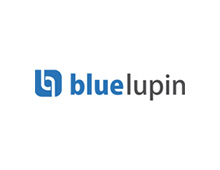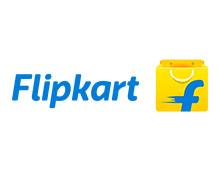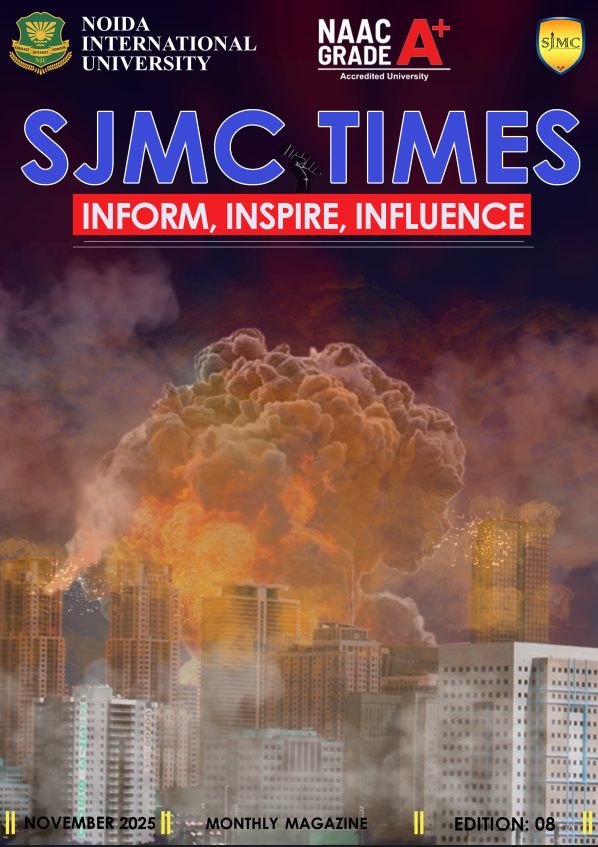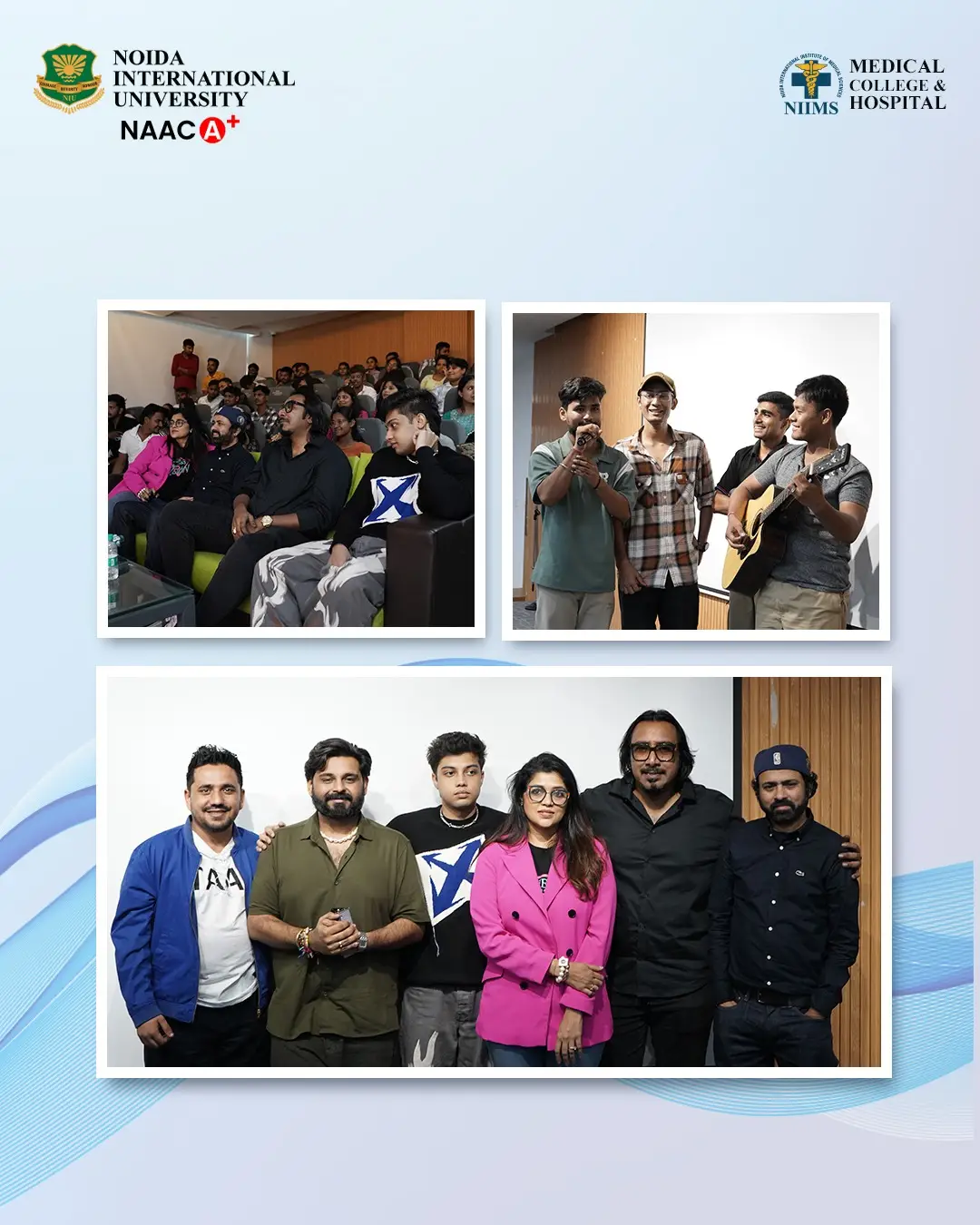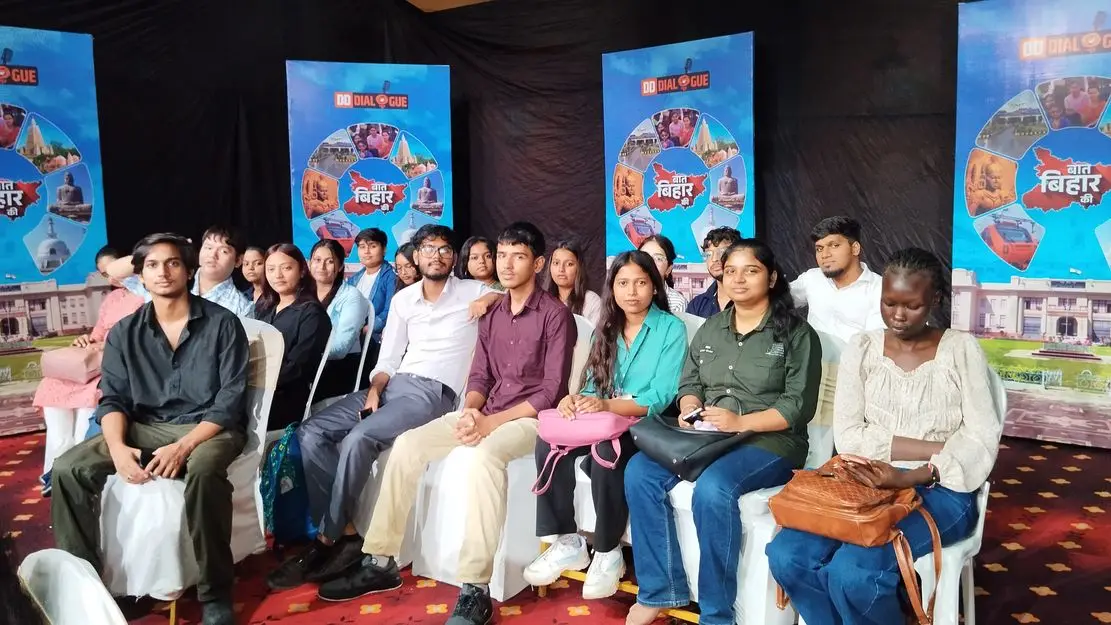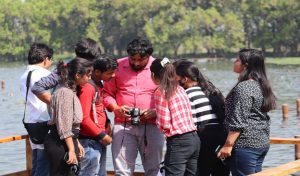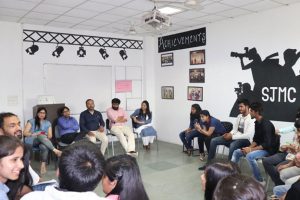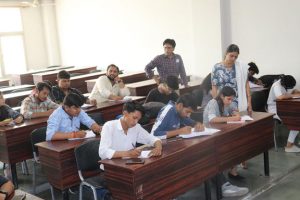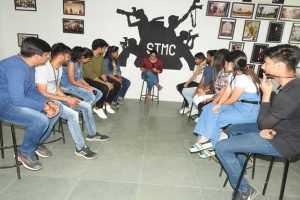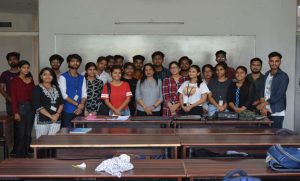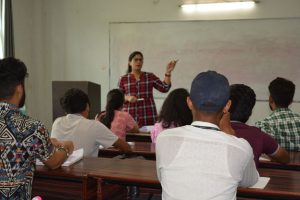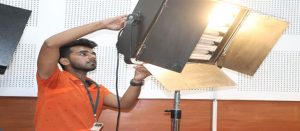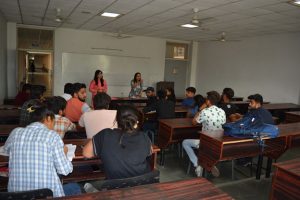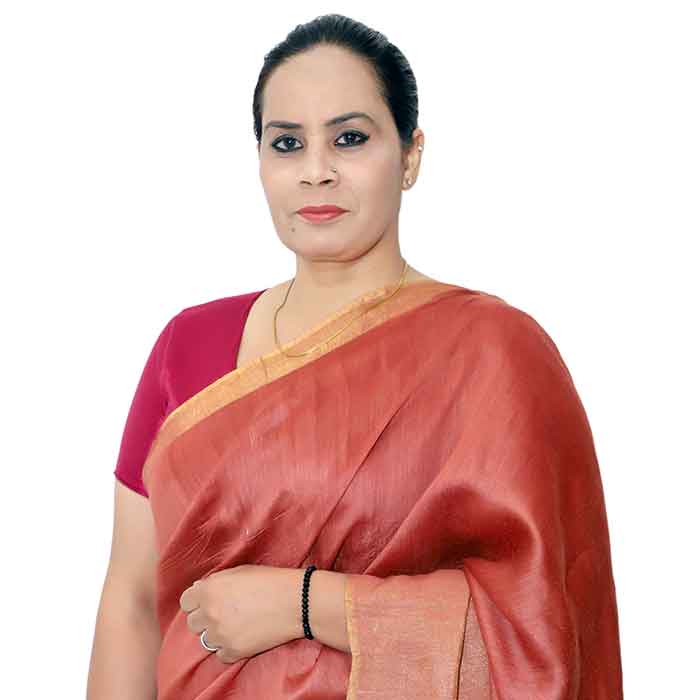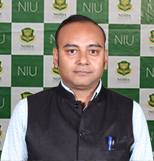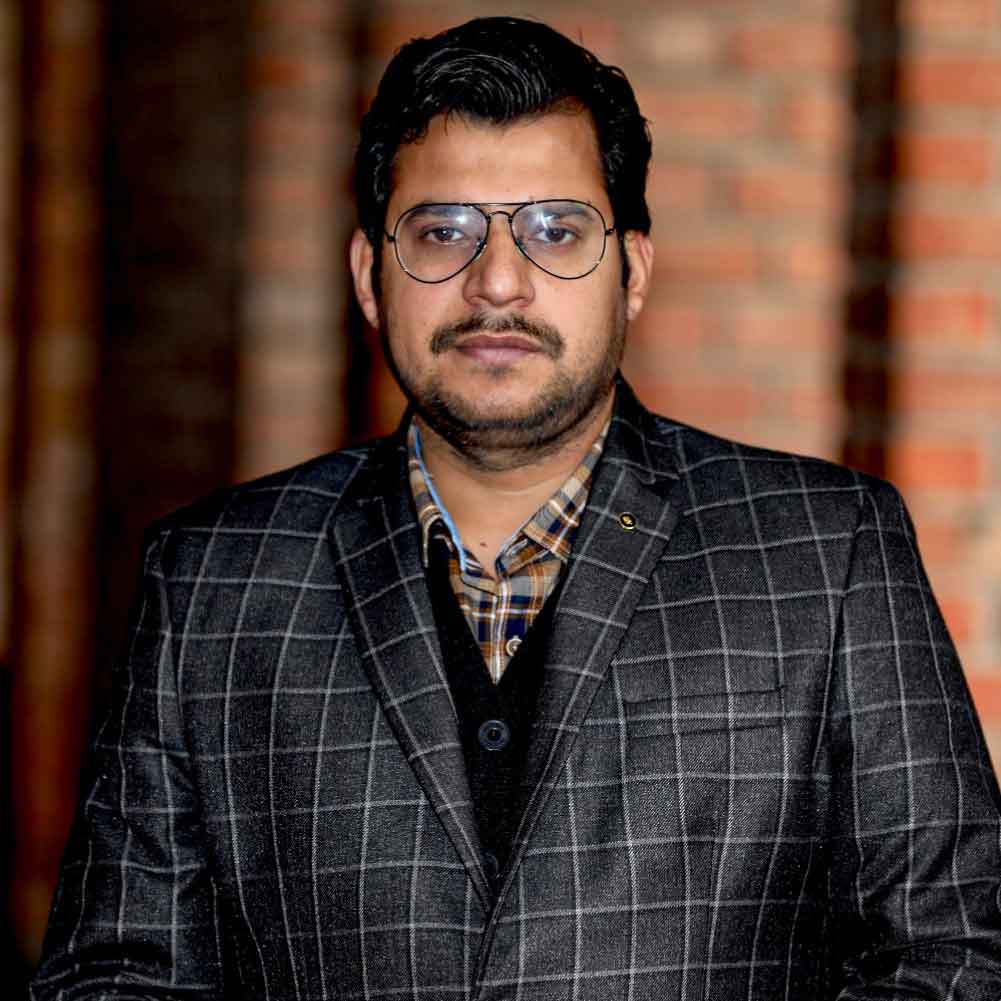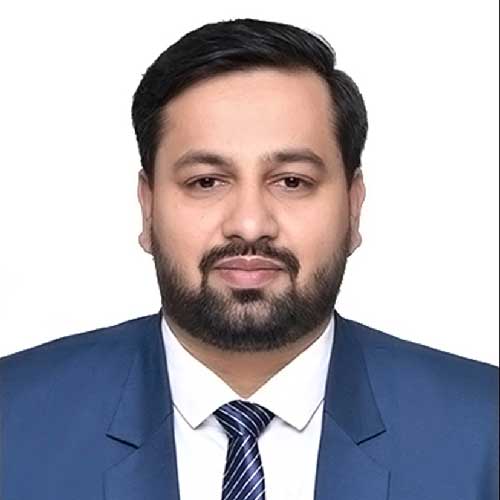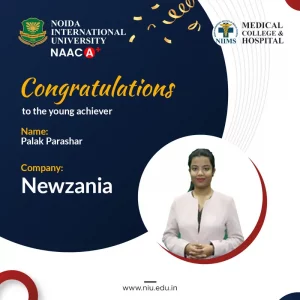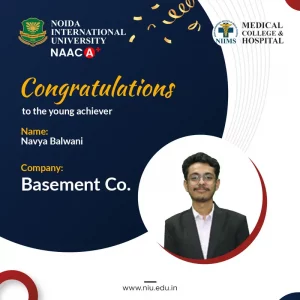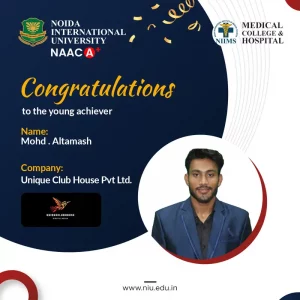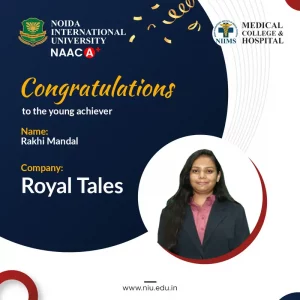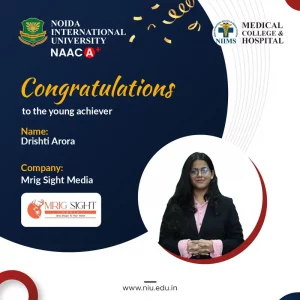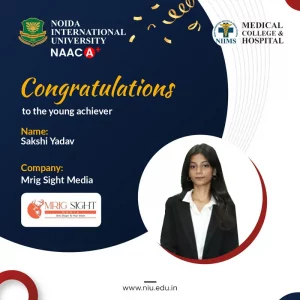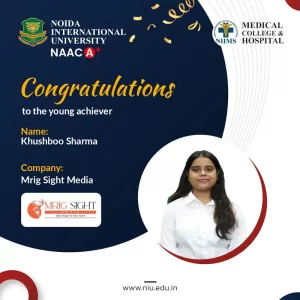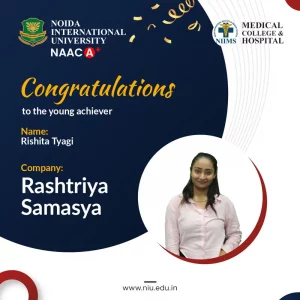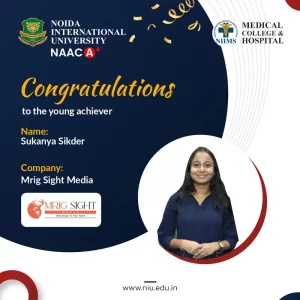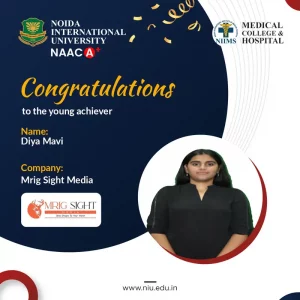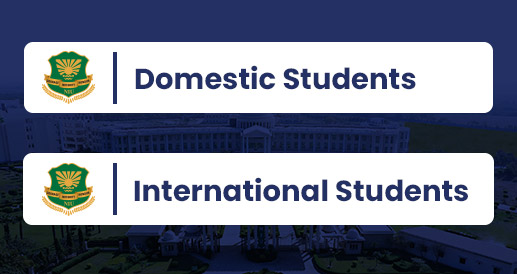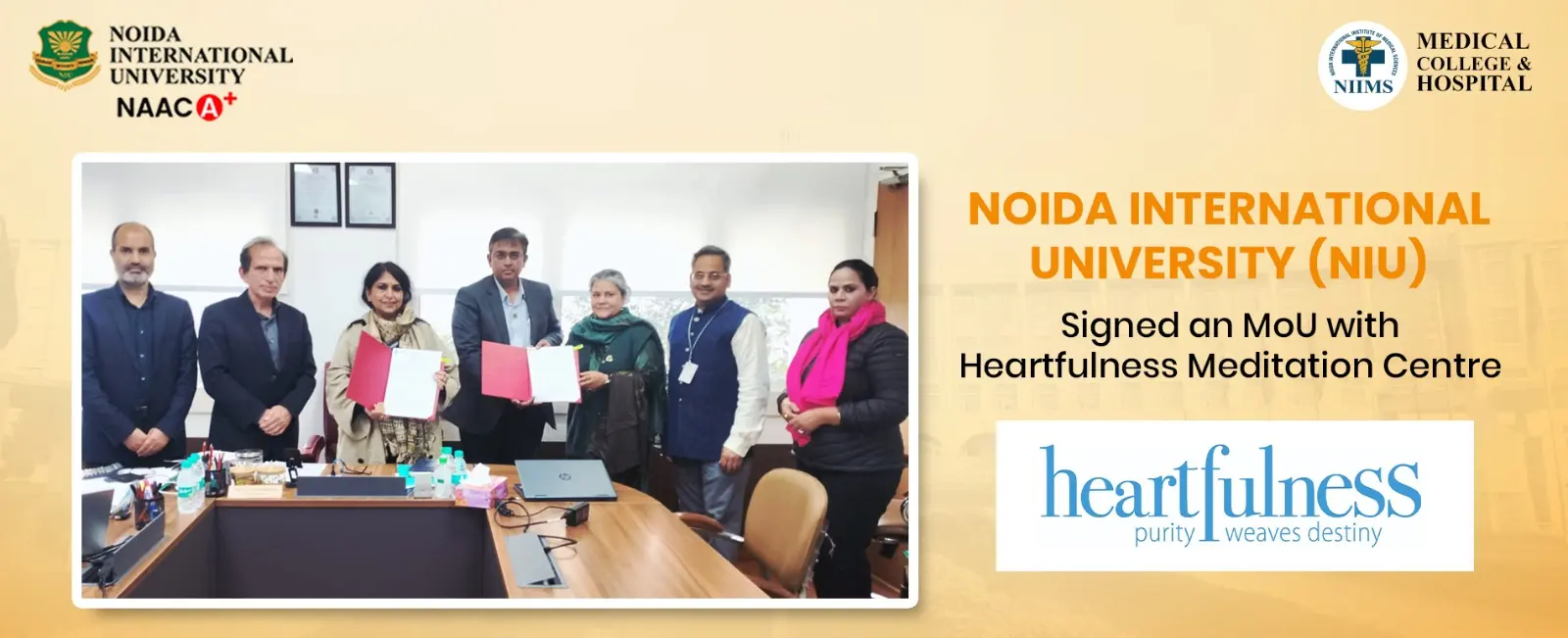
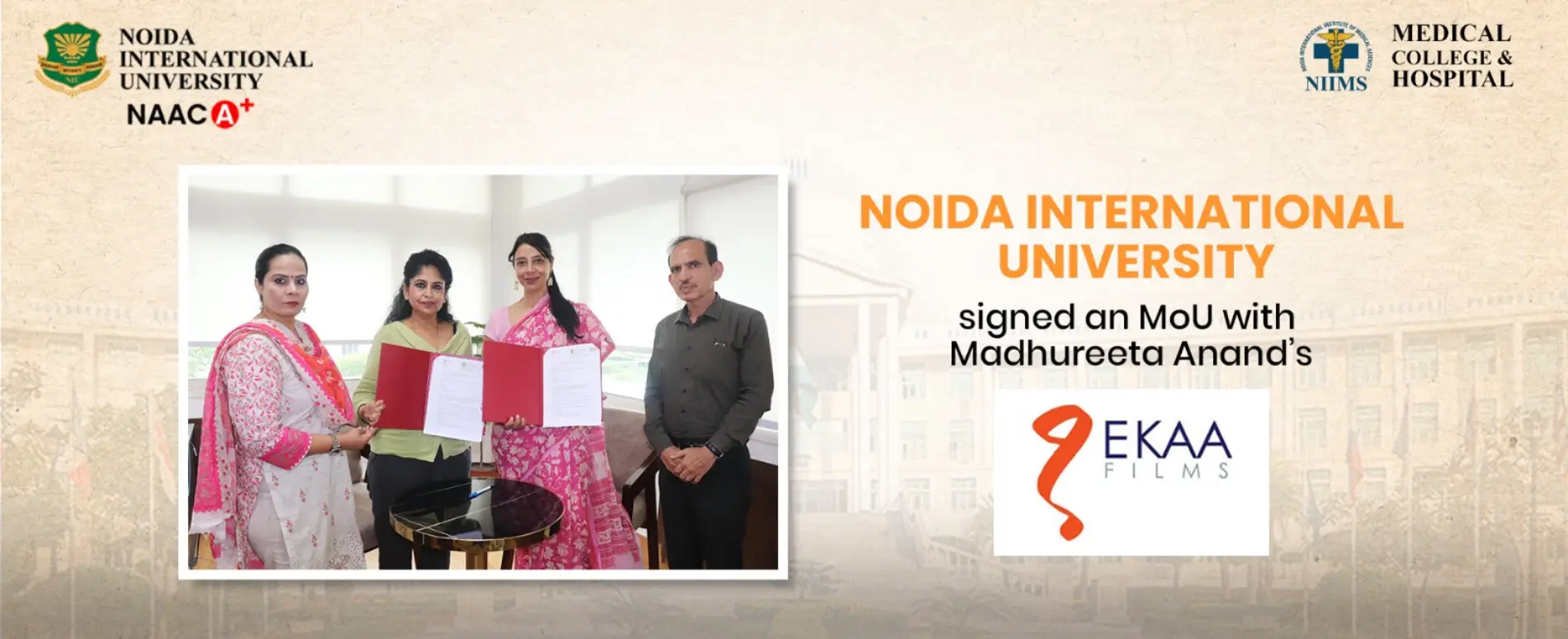
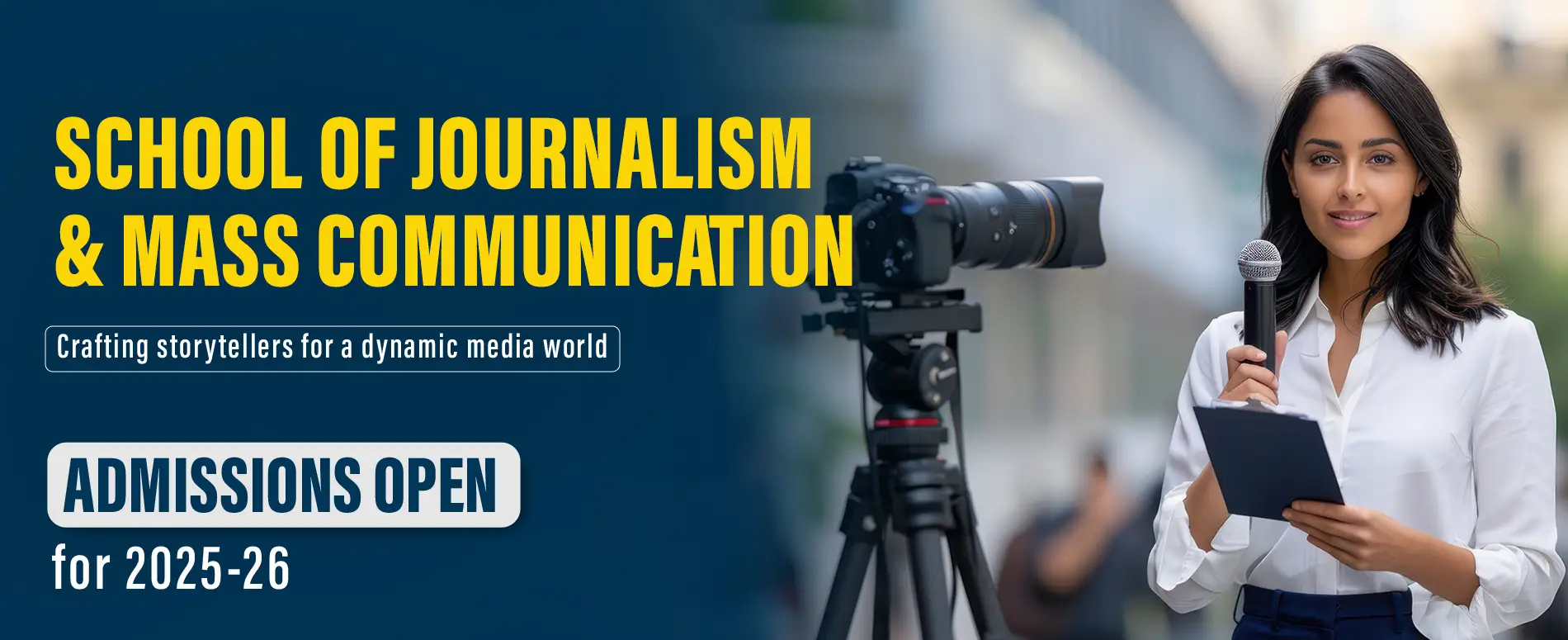
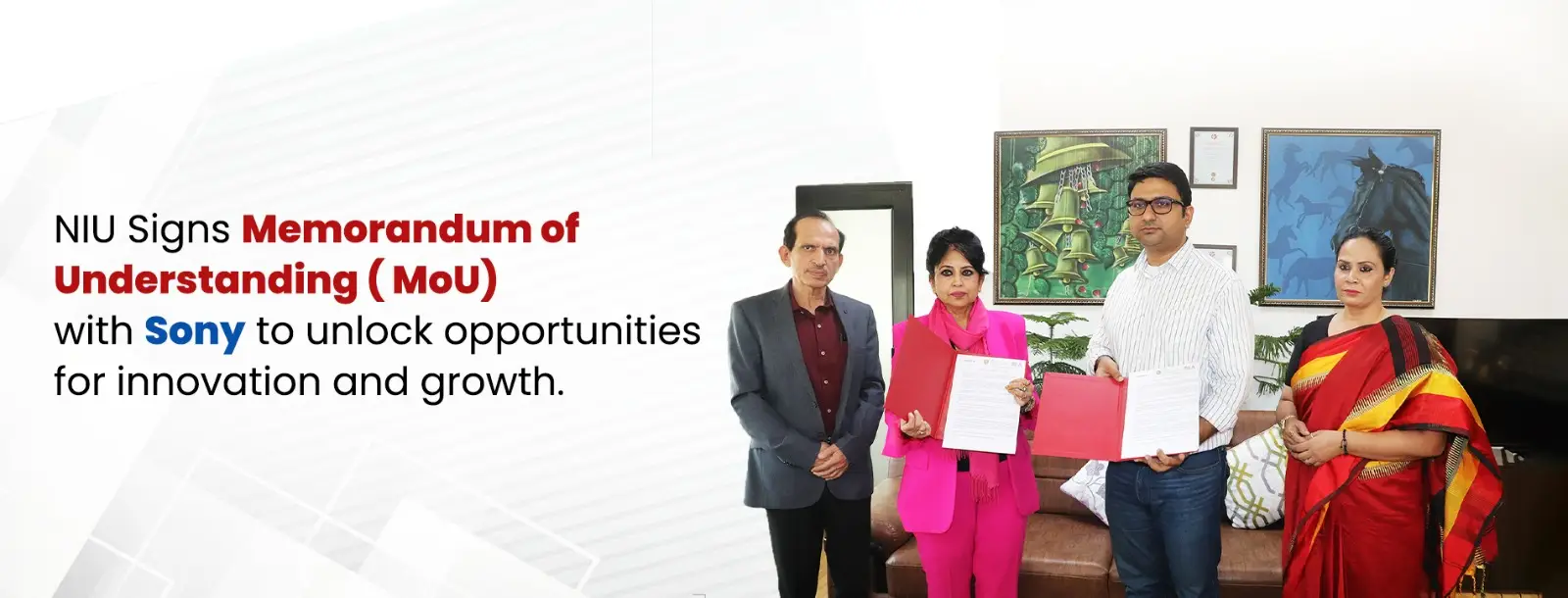
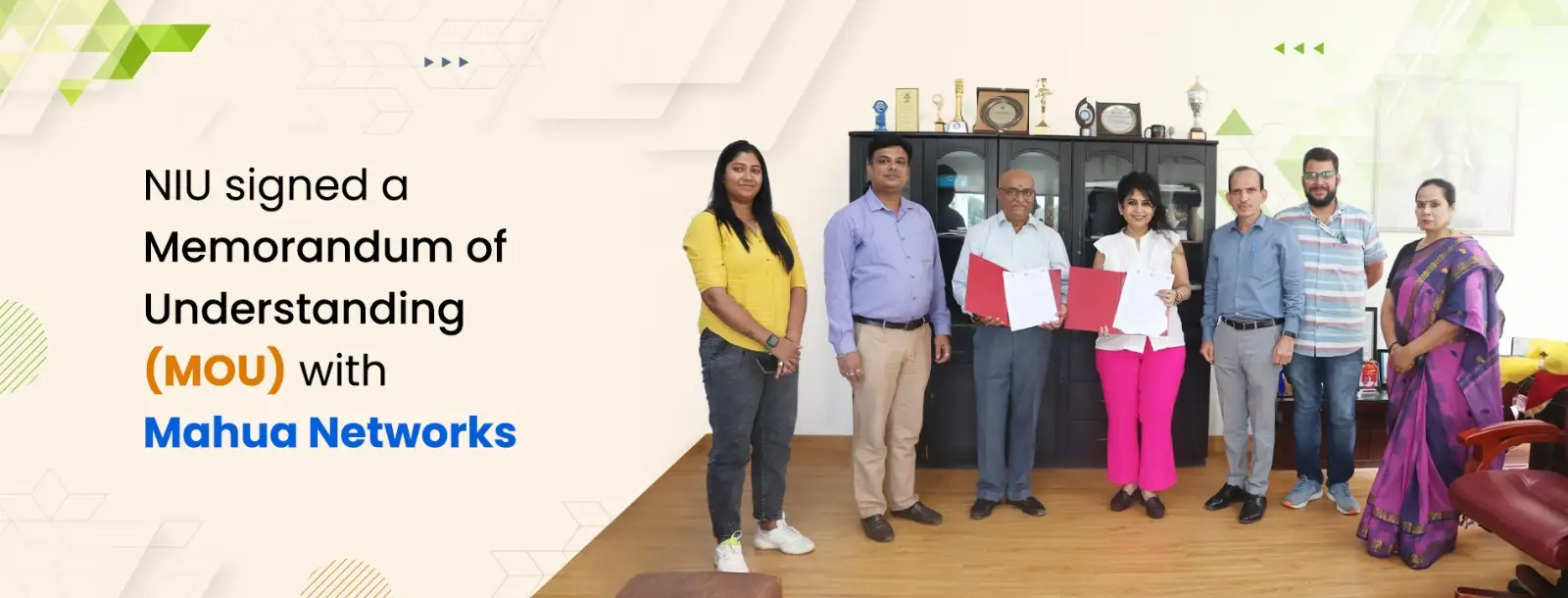
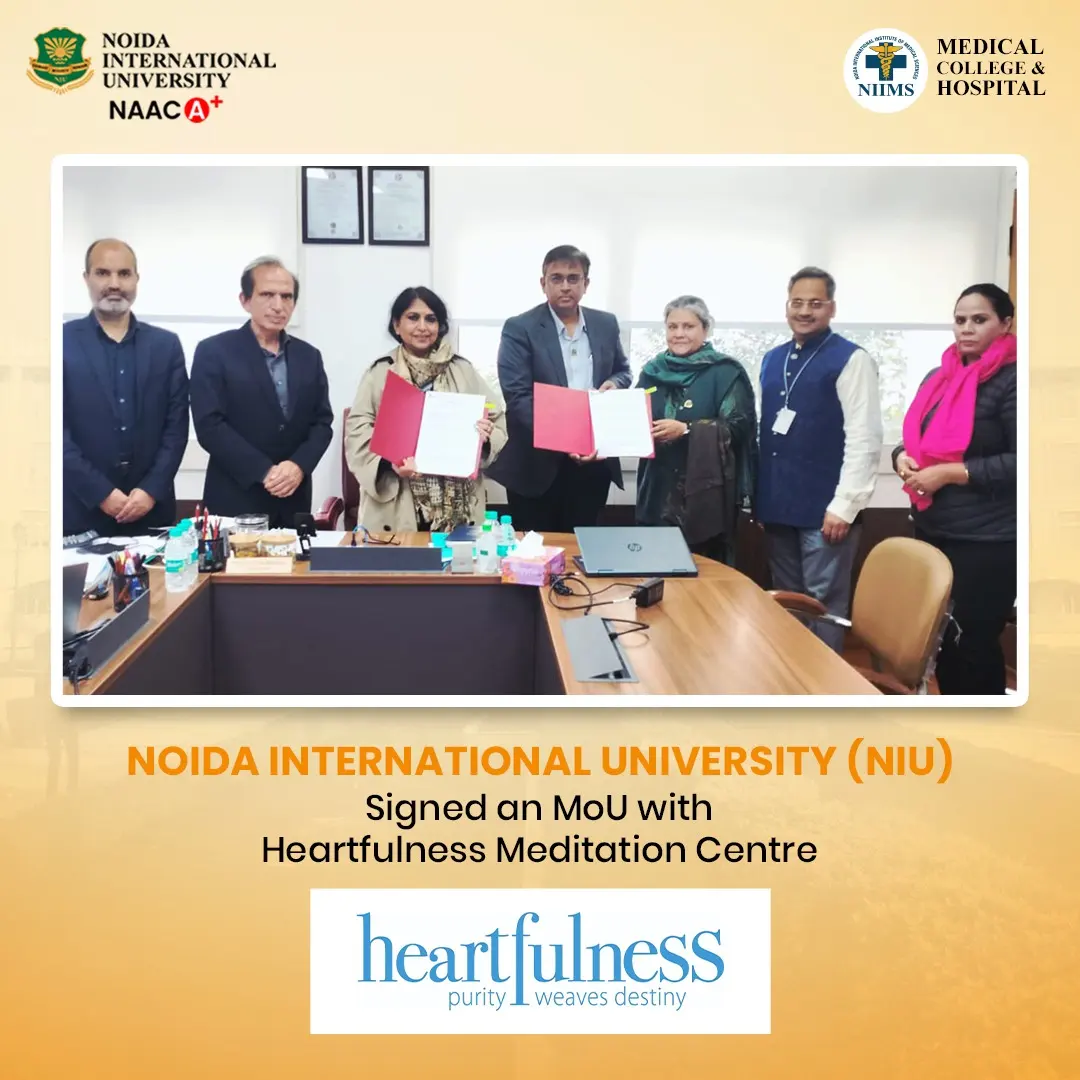
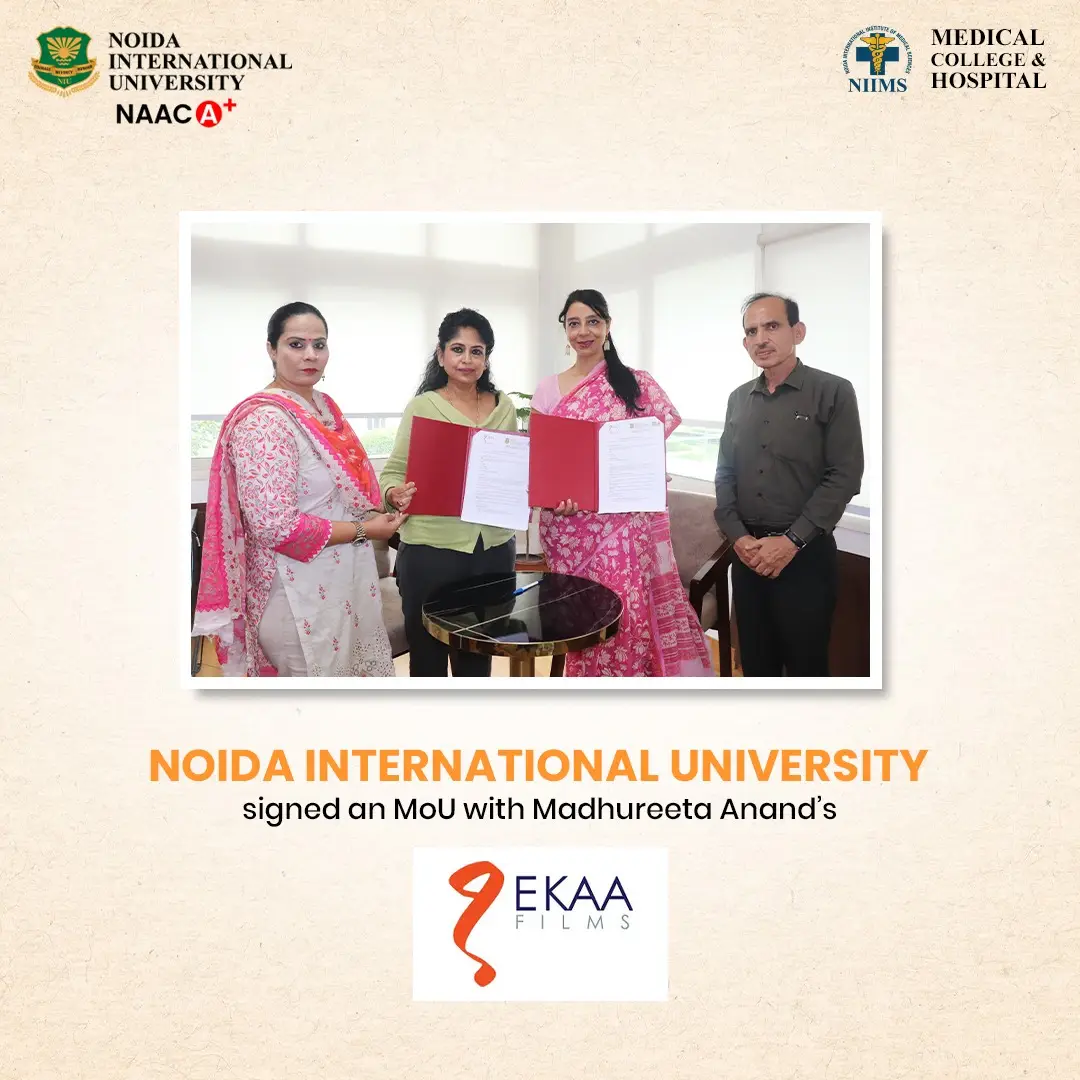
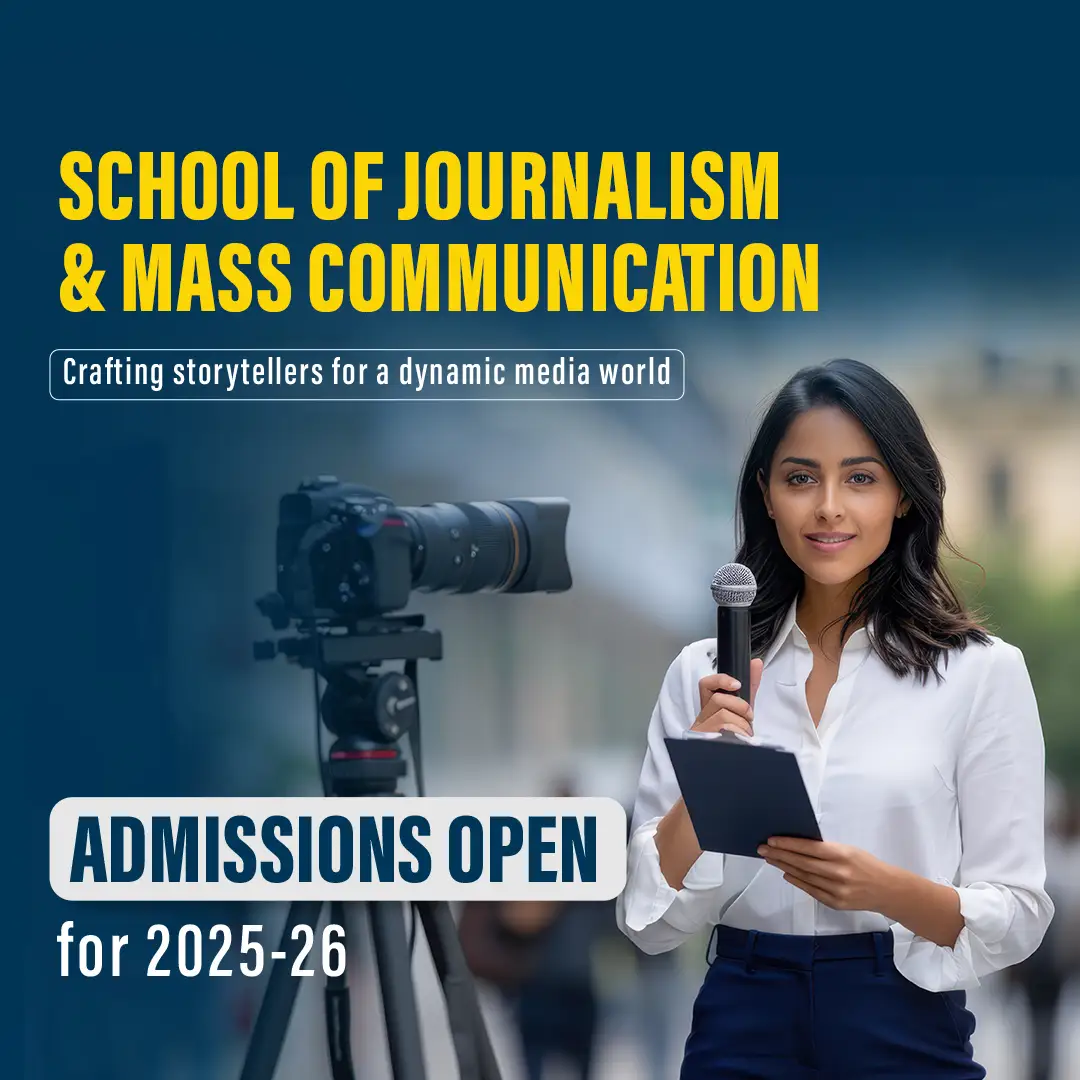
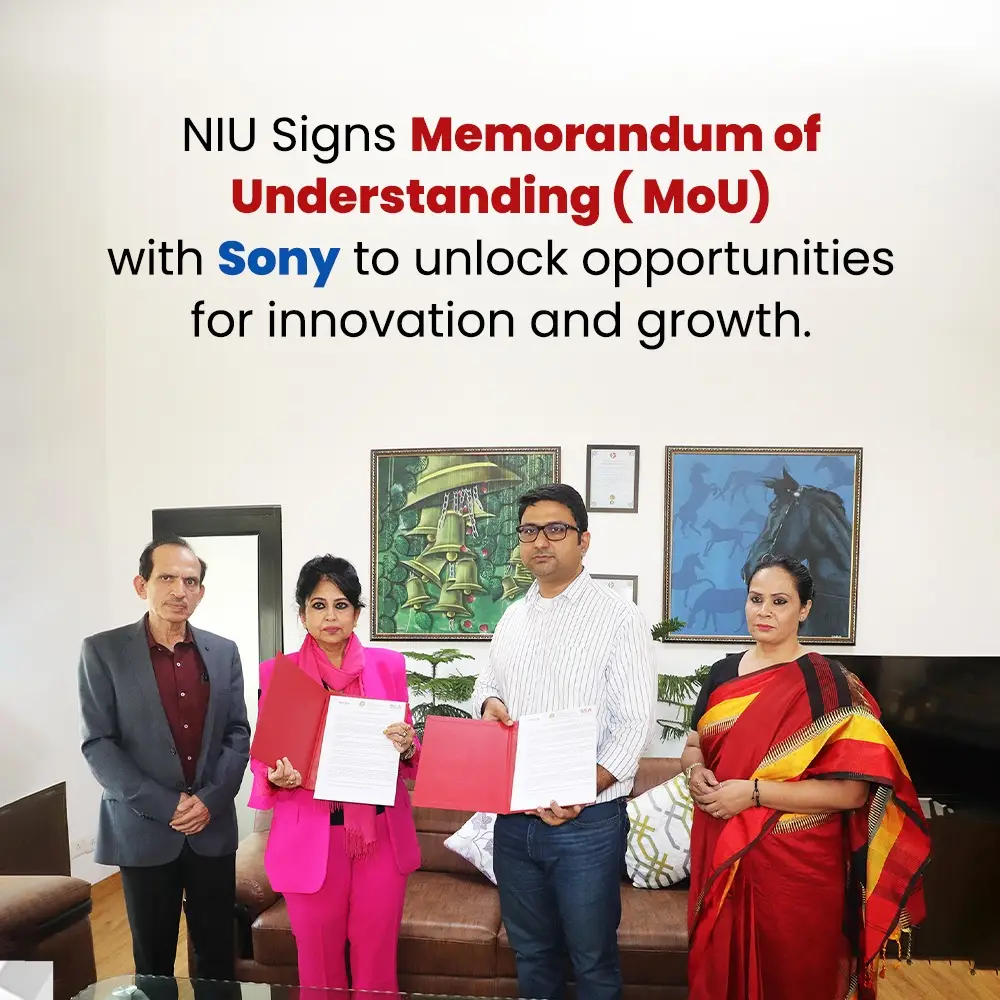
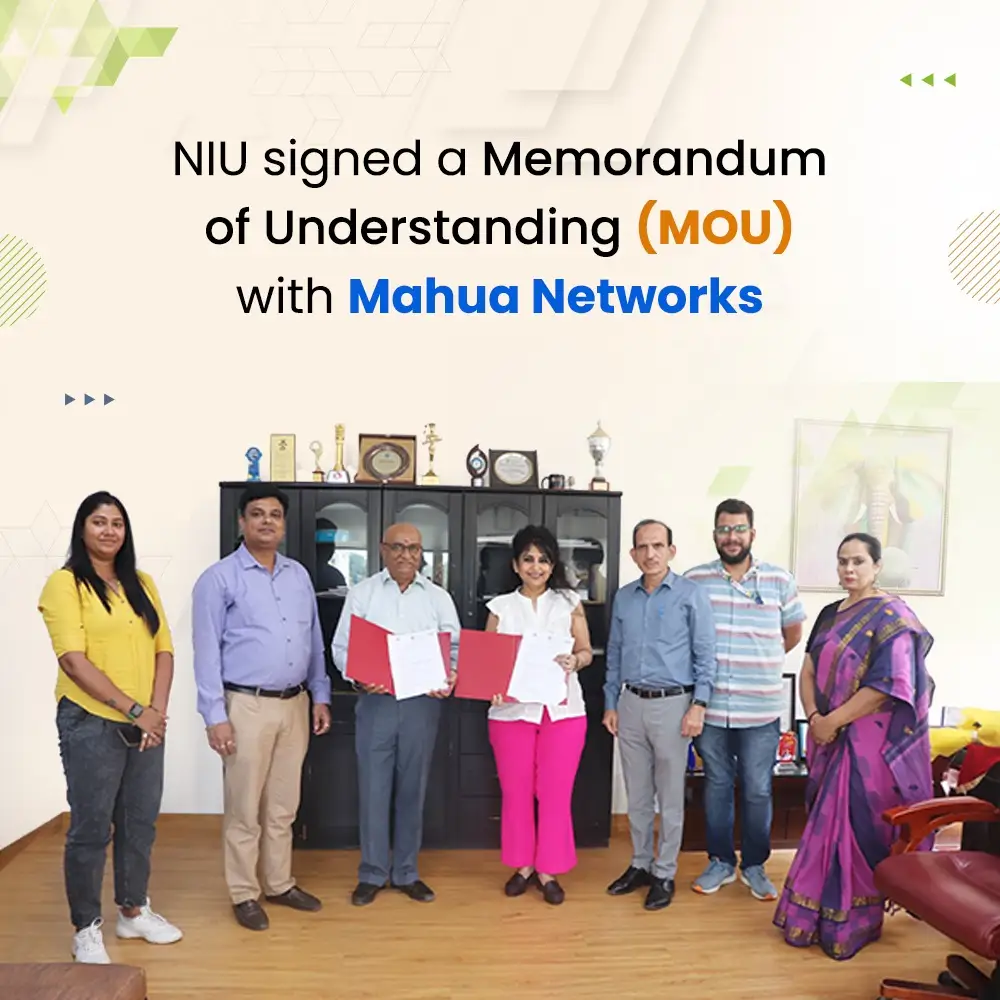
About School of Journalism & Mass Communication
Journalism and Mass communication are exclusive ways of disseminating information and messages to the masses through different mediums such as Newspapers, Radio, Television and Internet. While journalism deals with the process of how news-related content is being produced, Mass communication is the system of diffusing the messages to the population. As the industry grows older and wiser, the need for young & dynamic communicators and journalists becomes infinite.
The School of Journalism and Mass Communication at Noida International University aims at providing the students an opportunity to explore themselves in the profession. Its uniquely designed courses and exclusive pedagogy are perfectly blended with the varied areas as per the industry’s growing demand. The school promises to explore the core competencies of each student and would help to make them think rightly in their career ahead. Constantly exposing the students to global media culture is what we strive for.
Dean’s Message:
“Medium is the message,” as said by Marshall McLuhan, the famous mass communication theorist. Became the focal point of the media industry in today’s scenario. The media industry as a whole has a very big umbrella. Entertainment has become a part and parcel of media in recent times, making it more viable and convenient for the audience. The growth has promulgated the audience into a new arena and made them customers. The customer-based interventions have put the industry into a new perspective of competition-based growth.
The media and entertainment industry in India is one of the fastest-growing industries in the country. Its various segments—film, television, advertising, print media, music, and digital, among others—have witnessed tremendous growth in the last few years.
Although in recent times the media and entertainment industry has grown some offshoot branches in the form of Animation, Gaming, Live Events, and Music etc. It was the distant past that only television, print, and radio existed. After the coming of the internet and digitalization, and moreover, with the coming of Android-based mobile phones, the scenario has been changed drastically. The so-called palm-based technology has made the media and entertainment industry more. Competitive. The introduction of app-based media has also driven the content to be more precise and meaningful.
The School of Journalism & Mass Communication provides you the space needed to become a communication professional. The focus of the school is to provide skill-based training, which is the most important part of the New Education Policy for 2020. The school also offers an array of specializations ranging from Digital Media to Photography. Press is the fourth pillar of democracy, and we at SJMC strive to strengthen it with our ideals & ethics.
Program key thrust Area:
- Regular interface with Industry Professionals and academic experts (Guest lectures and Industry visits)
- Hands on training on various media software like IN-Design, Photoshop, Coral Draw, Hindi typing, FCP, etc., as per industry demand.
- Industry-driven curriculum and pedagogy (case studies, role plays, Theatre and dramatics, Literary, Digital Society, Camera Handling & Cinematography)
- Focus on applied and experiential learning
- Professional Development, Personality Development, Soft Skill Development, & Communication skills are part of the curriculum.
- Industry Projects, Placements, and Internships
- International Immersion opportunities
- Choice-Based Credit System (CBCS) with a basket of Elective and skill-based Courses
- Scholarship available to meritorious students
PEO1: To equip students with the knowledge and essential skills required for working in various media organizations with different mass communication apparatuses and varied audiences need.
PEO2: To instill knowledge and fundamentals of communication in the students and hone their written and spoken communication skills essential for various media platforms.
PEO3: To encourage critical thinking, research aptitude, ethics and social responsibility related to media in the students.
PEO4: Prepare students to undertake further study at PG level.
PO1: Students will acquire a functional knowledge of the underlying principles and recent emerging trends of the media industry.
PO2: Students will develop communication skills, appreciation for creativity, critical thinking, and analytical approach.
PO3: Students will be equipped to conceptualize, create, design, and strategies high-quality media content for print, TV, radio, films and various digital platforms like social media, mobile etc.
PO4: Students will appreciate and demonstrate the ability to produce reliable outcomes firmly founded on socially responsible framework, backed with decent knowledge of media ethics and law.
PO5: Develop logical and creative thinking for the solutions for business, journalism, advertising and promotion and E-learning.
PO6: Develop self-confidence and awareness of general issues prevailing in the society.
PO7: Develop an understanding of various media tools, techniques and software.
PEO1: To introduce students to the different fields of journalism and mass communication.
PEO2: To facilitate the understanding of application of evolving technologies in the field of Mass Communication and Journalism.
PEO3: To enhance the knowledge of students with regard to various disciplines of Mass Communication like corporate communication, advertising, journalism, public relations, photography, film making, event management, development communication and new media
PEO4: To develop the use of communication research methodologies for the field of research.
PO1: Students will acquire a functional knowledge of the underlying principles and recent emerging trends of the media industry.
PO2: Students will develop communication skills, appreciation for creativity, critical thinking, and analytical approach.
PO3: Students will be equipped to conceptualize, create, design, and strategies high-quality media content for print, TV, radio, films and various digital platforms like social media, mobile etc.
PO4: Demonstrate the ability to respond to design briefs through conceptual thinking, design work, media and other methods.
PO5: Develop logical and creative thinking for the solutions for business, journalism, advertising and promotion and E-learning.
PO6: Develop self-confidence and awareness of general issues prevailing in the society.
PO7: Develop a practical understanding of the underlying principles of Mass Communication and Journalism Industry.
Program Offered: BAJMC, MAJMC & Ph.D.
Research Areas: Print Media, Electronic Media, Public Relation and Corporate Communication, Advertising, Development Communication, Digital Media, Journalism.
SJMC’s Event
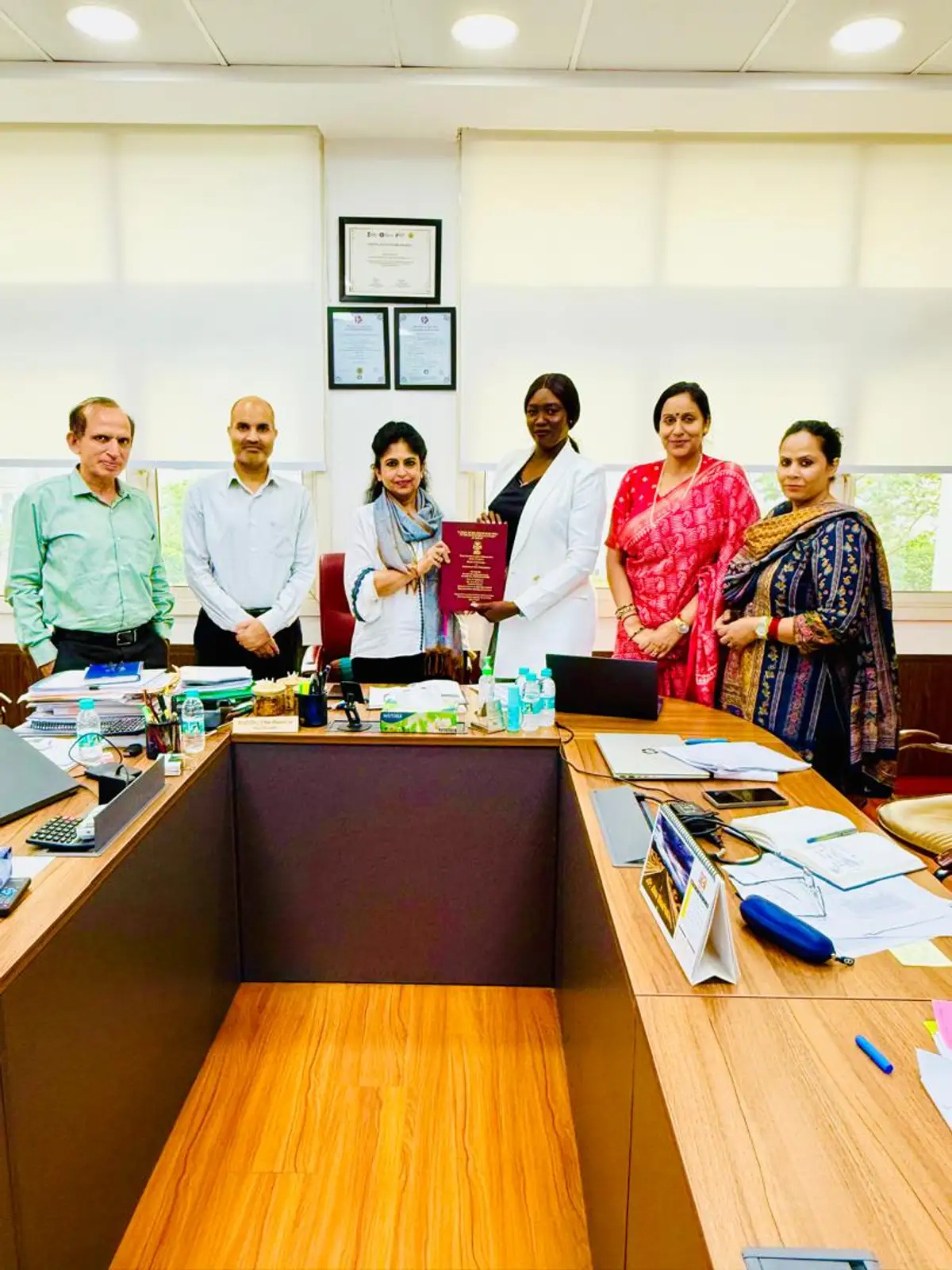
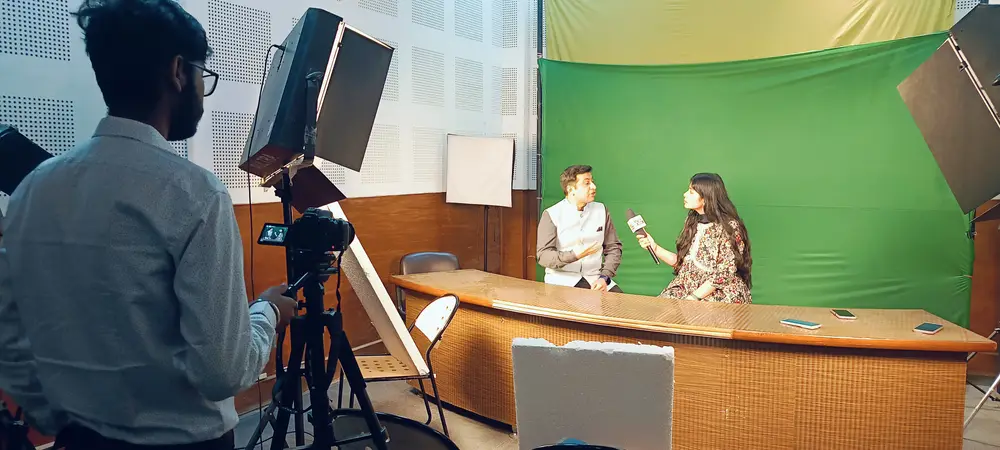
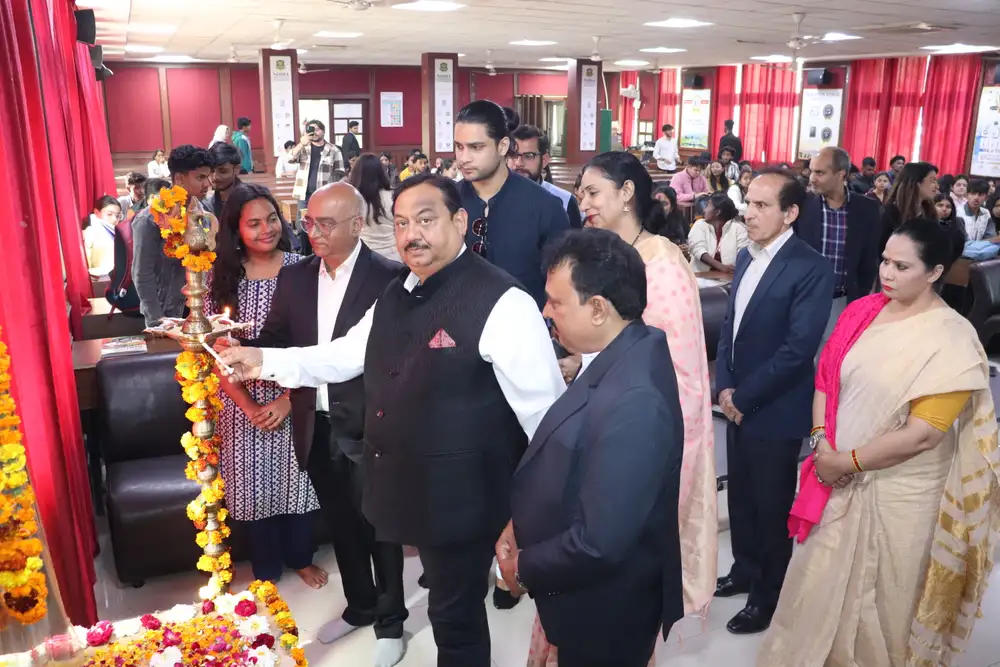

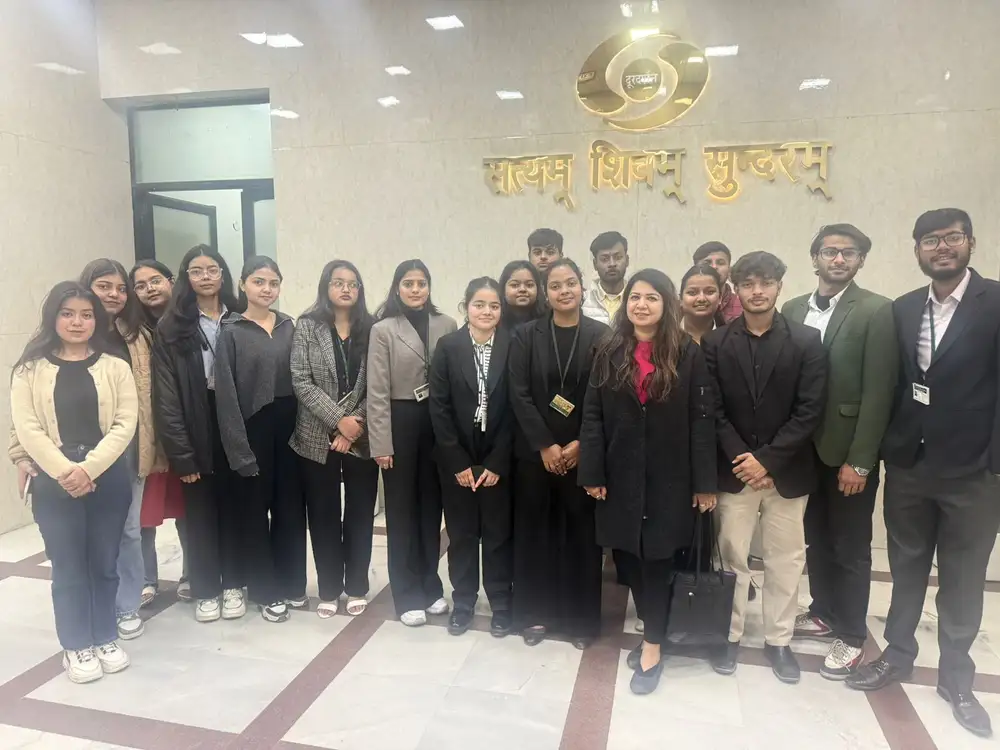


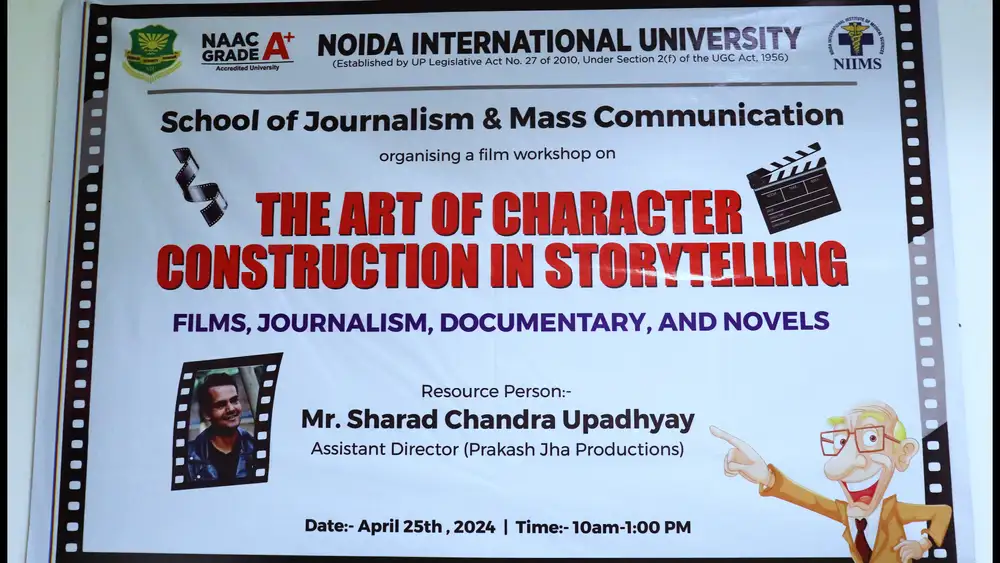
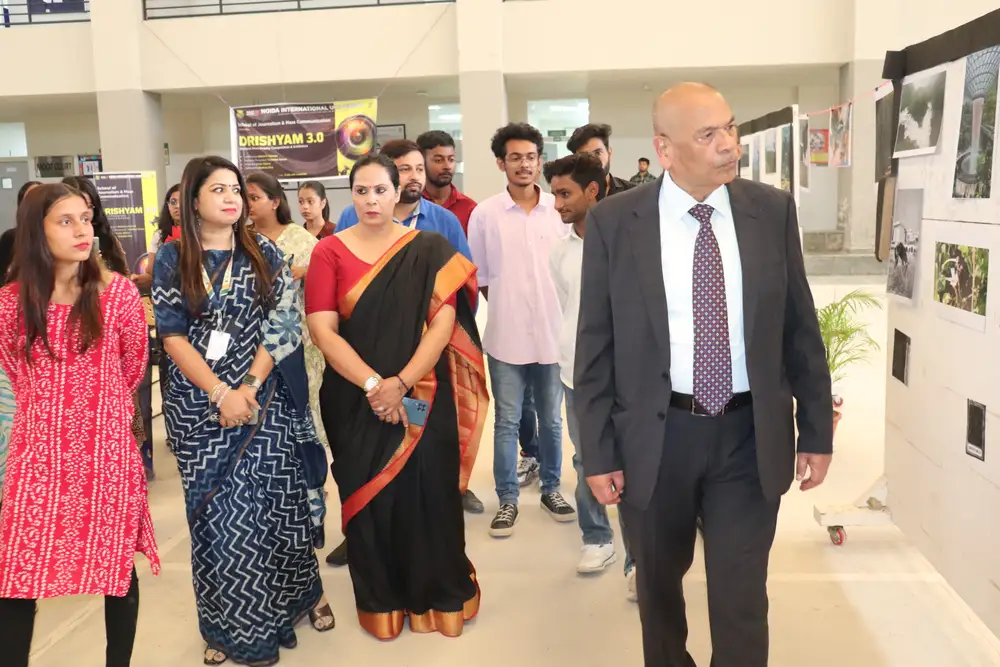


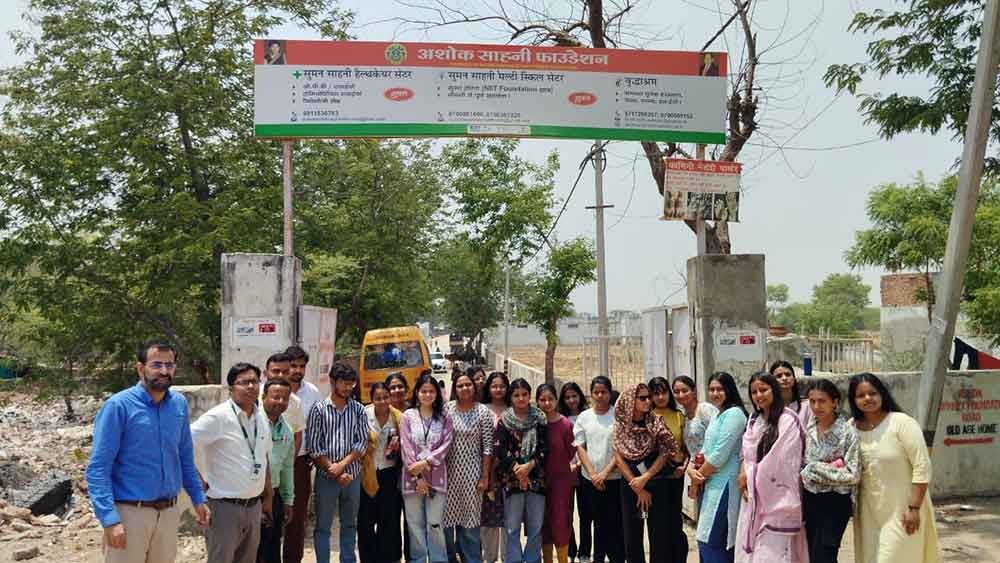
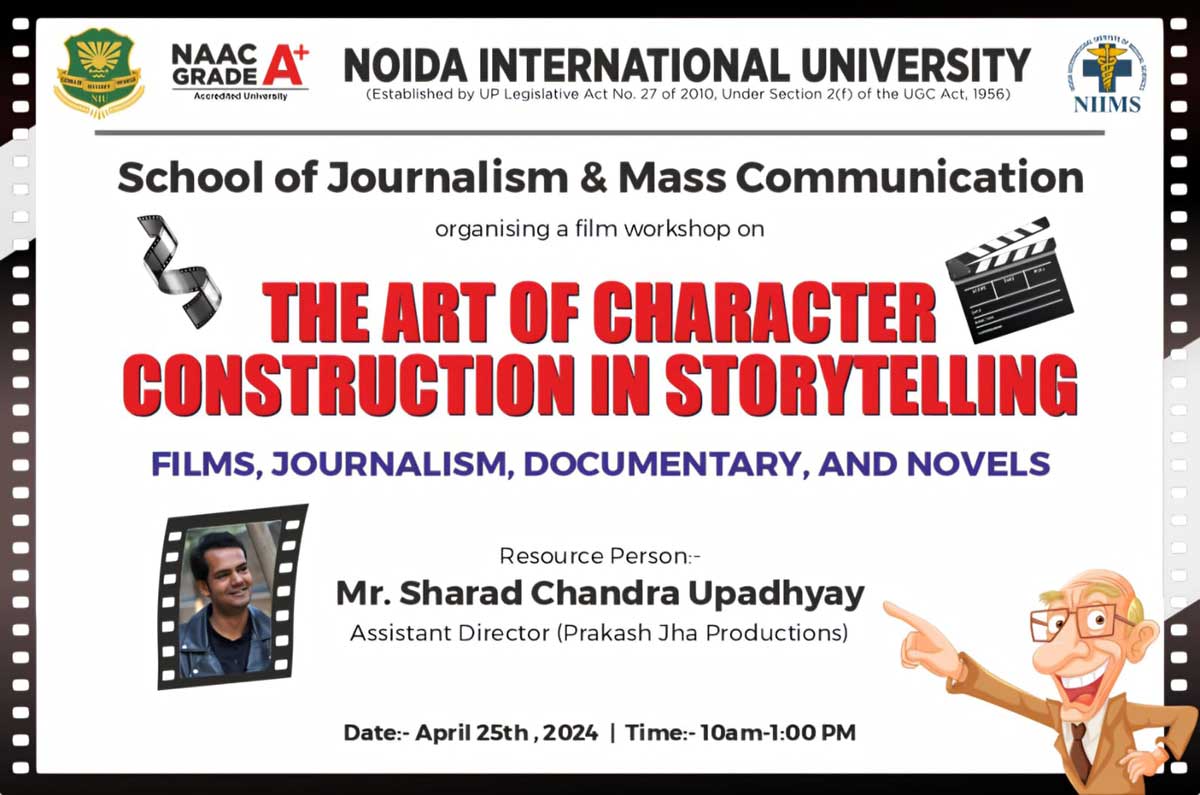
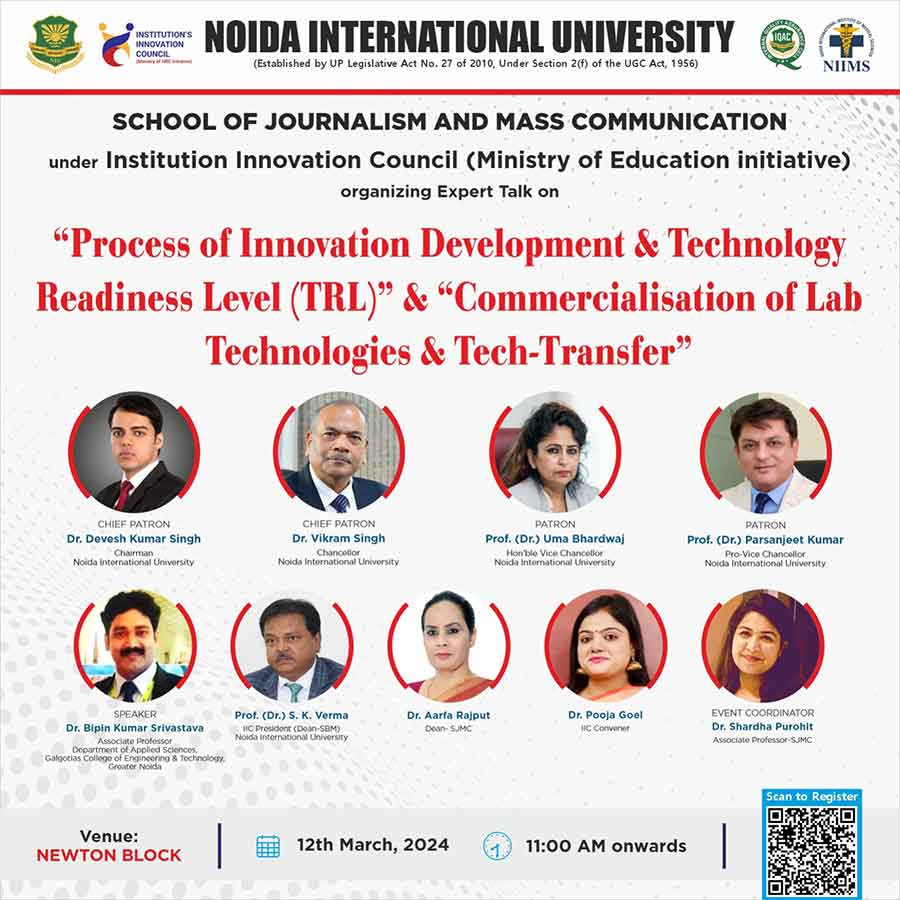



Programmes Offered
| PROGRAM | COURSE | ELIGIBILITY | DURATION | IST YEAR FEE | IIND YEAR FEE | IIIRD YEAR FEE | IVTH YEAR FEE | VTH YEAR FEE | FULL COURSE FEE | Enquire Now |
| BA-JMC | Bachelor in Arts in Journalism & Mass Communication | Minimum 55% marks in 10+2 with relevant subjects | 3 or 4 | 81500 | 84200 | 87000 | 89900 | N/A | 342600 | Enquire Now |
| MA-JMC | Masters in Arts in Journalism & Mass Communication | Minimum 50% marks in Graduation in any discipline | 2 | 76000 | 78400 | N/A | N/A | N/A | 154400 | Enquire Now |
Note:
- INR 10,000 one-time refundable security fee.
- Scholarships are applicable only on tuition fees for the first year.
- An additional INR 2,500 to be paid in the end semester for the award of degree
Scope
Diverse career opportunities in the field of journalism
Diverse career opportunities in print,
- Broadcast
- Digital Media
- Public Relations
- Advertising
- Corporate Communications, Etc.
Ability to work as a
- Journalist,
- Editor,
- News Anchor
- Reporter
- Content Writer
- Social Media Manager
- PR specialist etc.
- Opportunity to cover a wide range of topics such as politics, entertainment, sports, health, technology, etc.
- Chance to work in dynamic and fast-paced environments with opportunities for creativity and innovation.
- Potential for growth into leadership roles, such as managing editor, news director, communication director, etc.
- Scope for specialization in areas like investigative journalism, data journalism, multimedia storytelling, etc.
- Possibility to work in diverse industries including media organizations, government agencies, NGOs, corporate firms, etc.
- Opportunity to make a positive impact on society by informing, educating, and engaging the public through storytelling and communication.
CARRIER OPTIONS IN TECHNICAL FIELD IN THE JOURNALISM & MASS COMMUNICATION.
- Continuous evolution and adaptation to new technologies and platforms in the digital age.
- Emphasis on audience engagement and interactivity through social media, live streaming, podcasts, interactive graphics, etc.
- Integration of multimedia elements such as videos, infographics, and virtual reality to enhance storytelling.
- Collaboration with cross-functional teams including designers, developers, data analysts, and marketing specialists.
- Focus on data-driven journalism, utilizing analytics and audience insights to create targeted content.
- Global opportunities for international reporting, cross-cultural communication, and understanding of global issues.
- Emphasis on ethical considerations and responsible journalism in the age of fake news and misinformation.
- Flexibility to work as a freelancer, contributing to multiple publications or platforms simultaneously.
- Emphasis on building a personal brand and online presence to enhance career prospects and networking opportunities.
- Opportunities for entrepreneurship and innovation in creating new media ventures or platforms.
Syllabus
PO's / PSO's
PROGRAM OUTCOMES
PO1: Students will acquire functional knowledge of the underlying principles and recent emerging trends of the media industry.
PO2: Students will develop communication skills, appreciation for creativity, critical thinking, and an analytical approach.
PO3: Students will be equipped to conceptualize, create, design, and strategize high-quality media content for print, TV, radio, films, and various digital platforms like social media, mobile, etc.
PO4: Students will appreciate and demonstrate the ability to produce reliable outcomes firmly founded on a socially responsible framework, backed with decent knowledge of media ethics and law.
PO5: Develop logical and creative thinking for the solutions for business, journalism, advertising and promotion, and e-learning.
PO6: Develop self-confidence and awareness of general issues prevailing in society.
PO7: Develop an understanding of various media tools, techniques, and software.
PROGRAM SPECIFIC OUTCOMES
At the end of the program, students will be able to:
PSO1: Create research-driven communication campaigns that accomplish organizational goals.
PSO2: Reporting on stories in an accurate, detailed, balanced, professional and timely manner.
PSO3: Anchoring and analyzing news for Television, Digital, and Radio Media.
PSO4: Apply production skills in preparation, creation, and distribution of content for the designated news media/channels/platforms.
PSO5: Determine the validity of news sources and research techniques. Students will be able to interpret data.
PSO6: Apply computer and technical skills to handle production and research functions in journalism with capacity to change with volatile markets.
PSO7: Strategies for personal and professional development.
PROGRAM OUTCOMES
PO1: Students will acquire functional knowledge of the underlying principles and recent emerging trends of the media industry.
PO2: Students will develop communication skills, appreciation for creativity, critical thinking, and an analytical approach.
PO3: Students will be equipped to conceptualize, create, design, and strategize high-quality media content for print, TV, radio, films, and various digital platforms like social media, mobile, etc.
PO4: Demonstrate the ability to respond to design briefs through conceptual thinking, design work, media, and other methods.
PO5: Develop logical and creative thinking for the solutions for business, journalism, advertising and promotion, and e-learning.
PO6: Develop self-confidence and awareness of general issues prevailing in society.
PO7: Develop a practical understanding of the underlying principles of Mass Communication and the Journalism Industry.
Program Specific Outcomes
At the end of the Program students will be able to:
PSO 1. To demonstrate course-related specific understanding in the field of communication and the meaning and purpose of communication at the individual, group, and societal level.
PSO 2. To evaluate and apply the objectivity and critical thinking for communicating to the masses through a variety of mediums such as Films, Documentary Filmmaking, Television, Digital, Advertising, PR, Corporate Communication and Event Management, Print, and constraining oneself within legal and moral limits.
PSO 3. After developing the critical and objective understanding, in the 4th semester, the Program divides itself into three specializations and each student has to choose one of the specialization and has to submit prescribed projects, thus fulfilling specialization requirements and creating professionals.
PSO 4. To write compelling content that presents well-organised facts in professional language for News, Documentary, PSA, and fictional stories and to write dialogues and other sequences for Ads, serials, and films.
PSO 5. Apply broadcast and entertainment management skills at the workplace.
PSO 6. Accumulating and sequencing thoughts from current event, surroundings, literature and history etc. to interpret and express the content for designated journalistic or film production.
Students of SJMC Sharing Their Experiences of Online Classes During The Lockdown Period
Video Gallery
- DEAN'S PROFILE
- SCHOOL OF JOURNALISM & MASS COMMUNICATION
Dr. Aarfa Rajput
Professor & Dean
Read Profile
Dr.Syed Fahar Ali
Associate Professor
Read Profile
Dr. Adarsh Kumar
Assistant Professor
Read Profile
Dr. Shardha Purohit
Associate Professor
Read Profile
Mr. Gaurav Parashar
Senior Production Manager
Read Profile
Dr. Kumar Ambar Pandey
Assistant Professor
Read Profile

It has indeed been a delightful experience to have been a part of Noida International University. Our university provides great exposure to students by organizing different activities and training which has helped all students. The atmosphere is full of motivation and innovation. It is all because of the efforts put in by our faculty members who always make sure that all students get the best knowledge. I would love to thank my entire faculty for being so supportive and providing us with the best field visit.
Koshita
Batch- BAJMC- 2020-22

You get good exposure and, good environment. I am a student of Noida International University, greater Noida; you tend to make many friends with BJMC students. They are very friendly and helpful. This course is one of the most popular courses that this university offers. This school has a lot of experienced and trained faculty members who have knowledge about not only theory but have experience in the field as well. They give you practical knowledge often about what has been taught so you can actually a proper idea of how to implement it. There is a well-equipped photography studio wherein we have stocks of high-end cameras and other instruments. All in all, it’s a very good university where the students have got good placements and secured a very bright future.
HARSH TIWARI
BAJMC- 2021-23 student
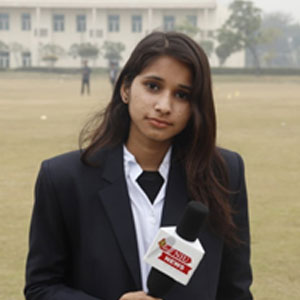
Noida International University is a ideal vibe for learning and practicing my Course. I'm Shivangi Yadav pursuing BA-JMC in School of Journalism and mass communication. I absolutely loved the curriculum,we practice Radio Jockeying,Video editing,Tv Anchoring,Photography,Videography,Print Media,PR & lot more. Our faculty cum Mentors support and helps us in Effective learning. I got my fit here in Green 75-acre Campus of NIU.
Ms Shivangi Yadav
BAJMC- 2021-23 student

I am a second year bachelor in journalism & Mass communication in Noida international University. Talking about my journey in Noida international University, our department school of Journalism & Mass communication is one of the bestest media schools in Delhi -NCR. With wonderful and experienced faculties members who are always ready to mentor and guide their students for their betterment. Our department provides wonderful exposure and facilities to their students for making them well trained for all the format media industries. Like for daily news practice we have a studio with teleprompter. we have a radio lab. We have a computer lab as well as a display room for healthy news discussion. Going through our course we are able to learn the latest media software like quark Xpress, final cut Pro, audacity etc. Our department always believe in more practical work that’s why our department always arrange regular workshop as well as fields visits for students’ experience and exposure.
School of journalism and Mass communication in Noida international University is a wonderful platform for those who want to make his/her career in media industries, PR agencies or film industries.
Ms Priya Kumari
BAJMC- 2021-23 student
